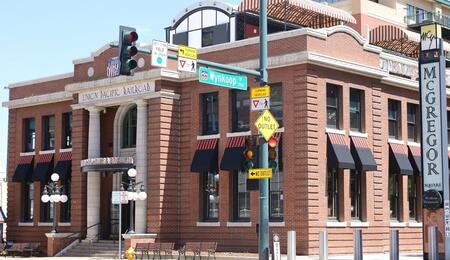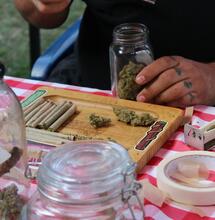Denver Cannabis Sector Goes in Recession

Denver’s cannabis industry is in recession for the first time in 11 years since legalization. Cannabis sales in Denver went down significantly, by many millions. City data indicates that the slowdown of the sector began as the pandemic ended. Widespread legalization of weed only further fueled the decline. Colorado’s cannabis market has suffered from regulatory burden and oversaturation, but also competition from neighboring markets.
Denver cannabis benefited from being part of one of the first legal state markets in the nation. It was history in the making when Colorado and Washington D.C. became the first to legalize the recreational use of marijuana and launch legal sales in 2014. However, things in the city have not been going so well lately.
Denver Cannabis Sales Descent in a First
In 11 years of legal marijuana in Colorado, Denver’s cannabis sales and profits are going down without indication to improve anytime soon. In the first half of 2024, Denver cannabis shops earned less than a third of the profits they made in 2020, when the market had its all-time peak.
Retailers generated just $180 million between January and July this year. For the same period in 2020, this figure stood at $715 million, according to city data, NewsNation reported.
In terms of profits for retailers, the peak was in 2021, when a total of $72.9 million in profits was reportedly recorded. In 2022, revenue reached $56.2 million, and it continued sinking also last year, in 2023, when it stopped at $48.5 million.
No longer is it the case that you simply open a business in Colorado and bang you make money out of cannabis. The feeling of many is that pot entrepreneurs now have to differentiate radically and outperform themselves and others so they can cash in from the local market.
One of the reasons attributed to the recession in Denver, and in general on the Colorado cannabis market, is that people are likely spending much less on cannabis products than they did during the COVID-19 crisis. The other, perhaps the more impactful one, is the extent of legalization, and the fact that now you can find marijuana everywhere you go. If Colorado turned extra profits from cannabis tourists in the past, that group of customers is now gone.
Colorado’s Market Worn Down by Legal Weed in the Neighborhood
In the first years of legalization, Colorful Colorado attracted thousands of tourists who came to the state just to enjoy weed. It was something exclusive that few other places had at the time. This largely helped grow the local cannabis market in Denver and beyond.
Crucially, legal cannabis for recreational use is nowadays available in Colorado’s neighbor states, Arizona and New Mexico. The launch of Arizona’s pot market has practically shattered cannabis business in the south of Colorado.
“Because legalization has spread across the United States, less people are coming to Denver to consume and purchase marijuana,” said Eric Escudero from the Denver Department of Excise and Licenses, Scripps News reported.
Driving to Colorado just to get a toke is no longer an incentive to travel even for Texans. Recreational marijuana isn’t regulated in the Lone Star State, but hemp-derived weed manufacture has flourished there and has basically filled the needs of the many.
Growing Number of Cannabis Operators Close in Colorado
Colorado-based cannabis company Green Dragon is the latest operator that announced it will cease activities by the end of the year.
Green Dragon’s representatives said that the company intends to close its grow facility in Denver by December, and lay off its personnel of 59. With that will also go 17 retail locations associated with the operator.
Green Dragon has been dealing with problems since 2022 when employees protested the company outside the Denver grow facility. The personnel complained about low wages, but also for an unsafe and unhealthy work environment due to mold.
Even if Green Dragon’s closure is not exclusively related to the recession, signs that the cannabis sector is stalling can be seen everywhere. 3D Cannabis, an iconic dispensary in Denver’s Elyria-Swansea neighborhood, hung a “temporarily closed” sign during the summer. “The dismal state of the historic site is a fitting symbol of the plight of Colorado’s cannabis market,” wrote Politico about 3D Cannabis closure.
Colorado legalized cannabis through a ballot-approved measure and launched legal sales on Jan. 1, 2014. The first legal recreational cannabis sale in the United States took place on that day, and had to be filmed twice, because there wasn’t enough room for the huge crowd and all the reporters with cameras that flocked inside a dispensary in Denver’s RINO neighborhood.
As is the law in every legal state, you must be 21 or older to have or use recreational cannabis in Colorado. It’s illegal to share or sell marijuana to minors, and it’s also against the law to drive under the influence or smoke pot on the street.
Also read on Soft Secrets:
- As Money Flows, Vermont Weed Market is Overcrowding











